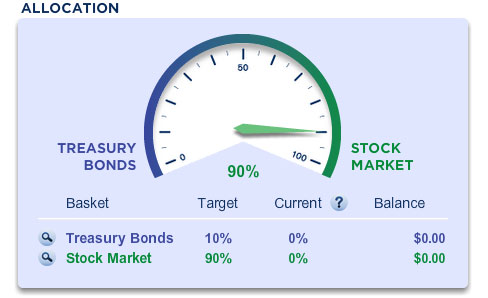This year, millions of Americans will sweat over doing our taxes during the final week before the April 18th deadline. Trying to find all of the paperwork, digging up and organizing charitable contributions, and searching for extra deductions takes time. What many are not aware of is that there is actually no need to hurry. You can get an extension on filing your taxes simply by utilizing one of many available options. The IRS will grant a six-month filing extension (to October 17, 2011) to just about any taxpayer who requests one by April 18, 2011.
Does That Mean I Get Extra Time To Write The Check For My Tax Bill?
Unfortunately, no. Otherwise, this would surely be a more popular option. The extension is only to prolong actually filing your taxes, not to paying them later. If you owe taxes, you will need to do at least a rough estimation of how much you are going to owe and then send that in. The amount you send must be at least 90% of what your final tax bill or you may owe the failure to pay penalty, but this penalty is significantly less than the late fees for not filing. The failure to pay penalty is 0.5 percent of the unpaid money for each month that you are late paying. If you were to not pay and not file the penalty would be 5% a month (25% maximum). Filing an extension gives you extra time to file your taxes and avoid the higher penalty. Of course, if you have a refund waiting, you cannot receive that refund until you file. If you incorrectly estimate the amount that you owe and send in too much money, you will be able to get the extra back when you file.
How Do I Get An Extension?
There are two basic options for getting an extension: you can either file the request form (4868: Application for Automatic Extension of Time To File U.S. Individual Income Tax Return) electronically or by mail, or you can simply send the IRS the amount of money that you estimate to owe them (using a credit card or debit card). Form 4868 has a worksheet to figure out what you owe and provides additional information.
File Electronically
Many tax programs include this extension form, so if you have already started your taxes with a tax program, you might be able to file through that program. Or, if your income is $58,000 or less, you can use the IRS’ Free File website. The service is free and very easy to use. (How to file taxes for free)
If you do not qualify to use Free File, be sure to only use a trusted and established tax program to file your extension; while this is one of the most simple forms that the IRS provides, there are many “services” on the web that will charge you a lot of money to file it for you, and it may not even go through at all.
File By Mail
The IRS will accept printed copies of IRS form 4868 through the mail. Make sure that the form is filled out completely and accurately. This includes double checking your Social Security number (and your spouse’s, if you file as “married filing jointly”) and make sure that your name is readable if completing it by hand. You must take these precautions because if your form is rejected for any reason, however minor, you will owe significant penalties on your now-late payments. If you have any tax due, be sure to include a check, money order or printout of your receipt from paying online.
Simply Pay Your Tax Bill
Sending the IRS your tax due will automatically provide you with you a six-month extension to filing your actual tax return itself. The IRS accepts credit and debit cards (although fees from the card issuer may apply), as well as direct transfers from your bank. If you can do a quick estimate of the tax bill you will owe, and you have paid or pay at least 90% of what you owe (through estimated payments, withholdings, or whatever you include with form 4868) then you will most likely be okay. However, if you do not owe any money or you are due a refund, you need to file a tax return, especially if you made more than the standard deduction.
Again, please remember that an extension on filing your taxes is not the same as an extension on paying your taxes. If you genuinely do not have the money, filing an extension will not allow you more time to pay, and you will still rack up penalties if you do not make a payment. If you cannot pay your tax bill, contact the IRS and ask for assistance and in most situations they will be happy to set up a monthly payment plan or some other type of payment arrangement. The IRS would rather work with you and get something set up now than wait for years while your penalties pile up.
So even if you are out of stamps, you are not out of time! File an extension and gain a little breathing room. At the very least, your accountant will thank you.
This guest post was provided by TaxDebtHelp.com, a site that provides news, tax tips and IRS debt help.



